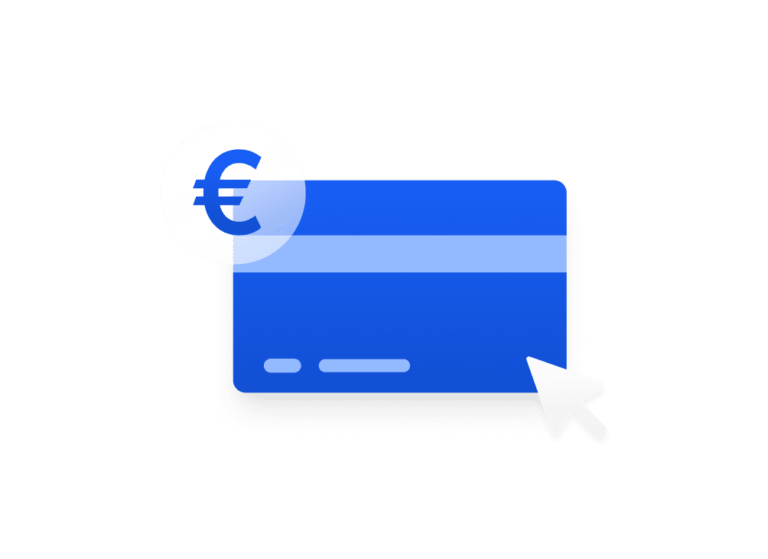Brexit is upon us, for good or bad, the day of reckoning that the country voted for in 2016 has finally arrived – not without shedding a lot of time, sweat and tears along the way – but now it’s done (kind of) we can all settle down and get on with things, right?
Ultimately, yes. Things will settle down to a new norm (we are experiencing a lot of these lately, right?), procedures and trade channels will fall into place and everything will find its functional level – finding what this new level is, that’s going to be the tricky part – trade will inevitably go on, business will find a way to survive (as it always does) but in the short term, there are many more challenges ahead for consumers and businesses alike.
Speaking on the subject from the point-of-view of someone close to me that is already facing these difficulties. I’m talking about a friend – an ex-pat living in Spain – they have contacts in the Scottish Fishing Industry, and they are involved in the importing of fish and shellfish into Spain. As is well documented, this has gone from being a painless experience at customs (even accounting for a global pandemic) to being an absolute nightmare, endless paperwork, and less certainty around job security. Of course, it will settle down, these are trade links that have been built up over decades, nobody on either side wants to stop trading, but damage will certainly be done in the process.
This article sets out to explore just what Brexit is, the agreements on a trade deal, and what are the ramifications for business on both sides of the fence.

What is Brexit?
I’m sure we are all aware by now what Brexit is, but just in case you have had your head in the sand for the last fours years let me explain in a few words “the technical definition of Brexit.”
- Brexit refers to the breakaway of the United Kingdom from the European Union and the European Atomic Energy Commission.
This withdrawal happened at midnight on the 31st December 2020, which came at the end of the transition period.
The United Kingdom is the only country to have taken such action within the EU, at least to date, but as of 11.00pm GMT on 31st January 2020, the United Kingdom was no longer a participant in the European Single Market and the European Union Customs Union. And as I previously noted, this is already having an impact on exporters and no doubt, many other businesses.
When did Brexit start?
Historically, there has always been a stronger anti-European Union movement in the UK than in any other European country. Cutting a very long story short, this movement gained enough leverage within the British Government to force – the then Prime Minister David Cameron – to put the matter to a vote in the form of a nationwide referendum.
Subsequently, on the 23rd of June 2016 the population of the United Kingdom voted, and the results are in … 51.9% of them backed leaving the European Union.
And the rest, as they say, is history.
When does the Brexit transition period end?
Officially, the UK left the European Union on the 31st of January 2020. As part of the agreement, a ‘Transition Period’ was established. This was allowed to run for 11-months and during this period the UK still operated within the umbrella of the European Union Single Market and Customs Union. While the ‘Transition Period’ became the common parlance, the UK Government always referred to it as the ‘Implementation Period.’
This period was required because the member countries of the European Union refused to negotiate the terms of new arrangements with the UK until it had left the European Union.
Originally, the transition period was due to run for twenty-one months under the terms of the original Withdrawal Agreement – drawn up by the then Prime Minister Theresa May – the date set under this agreement was 31st of December 2020. This remained the date despite the UK Parliament not approving the terms of the withdrawal agreement.
The upshot was that the transition period ran for only eleven months from the 31st January 2020, and coming to an end on the 31st of December 2020.
What is Do-Deal Brexit?
A No-Deal Brexit or ‘Clean Break Brexit’ was the potential scenario where the UK left the European Union without a withdrawal agreement. This would mean that there were no agreements in place between the parties on factors such as trade tariffs, movement across borders, and all other aspects of interaction between the UK and European Union member states that had previously been regulated by the European Parliament in Brussels.
Under this scenario, trade would continue but would be under the auspices of the World Trade Organization’s (WTO) Most Favored Nations rules.
If a No-Deal Brexit had happened then even more serious disruption to UK-EU trade and travel would have been the outcome and contingency plans drawn up between the UK and EU had been agreed to cover more serious risks had this occurred. This would have been a short-term solution designed to cover such fields as medicine, fuel and essential items.
In the end, a deal between the parties was concluded with only a few days to spare (If you took a break from the GDPR updates, and were keeping up to date with how Brexit was progressing in the news, you would have noticed that it felt somewhat like a scene from the movies, when a timer is ticking slowly to zero, and the protagonist arrives just in time, and it stops at one second).

How do I invoice a UK business?
To be considered a legal invoice in the UK, any invoices sent from Europe must include the following details.
- Your Company name, and its address and contact details.
- The Company name and address, or customer name and address of the recipient
- A unique Invoice Number
- A description of the goods or services to which the invoice refers
- The supply date of the goods or services
- The Invoice Date
- The total cost of the goods or services
- The amount of any local taxes such as VAT
- The total amount payable
There is no need for any additional personal data, or any “non-EU” statements, as the invoice process hasn’t changed in any significant way since Brexit started and the same set of rules applies for all invoices sent within the UK.
What does Brexit mean to European Union Member States?
These are early days and the full ramifications of the move have yet to fully materialize. There will be foreseen difficulties that may actually have easy solutions, and there will be unforeseen problems that will be difficult to resolve. What we can say with some certainty is there are clear implications for all parties.
Some major implications will be in the fields of defense and foreign affairs. Along with France, the UK was one of the EU’s top two military powers. This included significant intelligence analysis that was shared with EU member states.
Freedom of movement is also affected. Freedom of movement for international workers was one of the foundation ideals behind the European Union. Whilst this will still be possible, there will be far more red tape involved for any person from Europe wishing to work or live within the UK.
Although there are many more areas that will be affected, including cross-border policing, the primary area affected will be business. The economic impact of the UK leaving is massive and certain member states are going to be more affected than others. Take Ireland for instance, the only country with a common land border with the UK (excepting Gibraltar and Spain), both countries are so tied together that this became one of the major sticking points in the negotiations. Although deals are in place, Ireland is still going to be one of the countries that suffers more problems.
Other EU countries that have closer ties to the UK in both business and culture and are likely to be harder hit include Belgium, Germany, Cyprus, and the Netherlands.
How does Brexit affect trade and tariffs?
In a nutshell, badly. For all the talk of agreements and all parties wanting to work together, it can only be bad the moment there are extra steps and customs regulations to comply with. Despite the agreeing of ‘zero tariffs and zero quotas’ on goods that comply with appropriate rules, the extra steps that are required to conclude a deal and export the goods are expensive and time-consuming.
It is expected that many of these issues are just ‘teething-problems’. Nonetheless, the procedures that have to be followed are set in UK law. Whilst the process of compliance will certainly streamline – given enough time – the laws and agreements that triggered them will remain in force and will always be an extra hurdle and expense.
How to know if my business is prepared for Brexit
Ultimately there is a lot you can do even at this late stage to ensure you are as prepared for Brexit, as much as possible. One of the first considerations you need to look at is your staff, here you can see a couple of specific areas that could affect UK Businesses;
If your staff have a UK professional qualification, like in medicine or law for example, these may no longer be recognised in the EU. Check whether this is the case and take the necessary steps to allow them to continue to operate under EU law.
If you employ EU citizens, they need to apply to the EU settlement scheme before June 2021 to ensure they can continue to work and reside in the UK.
For manufacturers, exporters and importers wishing to move products across borders you will need to find the ‘Commodity Codes’ that apply to each product. These codes define the way that customs deal with the product, classify the processes you need to follow, and any taxes and tariffs that apply to the goods.
It is also an idea to speak to your member state customers and ask them if there are any local guidelines and legislation your products and associated processes have to adhere to.

How does Brexit affect the European Union?
The UK is obviously the country that is going to be most affected by Brexit. However, the remaining countries within the European Union are also affected by the impact of Brexit.
There has been much talk pertaining to the fact that the UK’s exit will lead to the post Brexit exodus of other countries. However, this is highly unlikely, at least in the near future. What it will do is give the stronger countries in the EU such as France and Germany an even bigger influence over the rest of the member states, Britain used to be a counterpoint that helped to ‘flatten’ this influence somewhat. Many smaller EU states were horrified by Brexit because of this very reason.
Business will also be affected as new custom rules and the free movement of goods ceases. For many businesses in the EU, this could mean ceasing doing business within the UK altogether, as it may well be easier to seek to expand existing EU markets instead, where red tape doesn’t hinder transactions.
One business type that is hugely affected by Brexit is online business. The UK was known as an e-commerce powerhouse and now the effects that Brexit is going to have on this sector is under massive scrutiny. From Data/Protection to intellectual property rights (for collaborated websites that have partners in the UK and EU), right through to the actual logistics of cross/border parcel deliveries, working with local taxes and delivery regulations. The list is endless.
There are a few steps you can take to mitigate the effects and be in as good a position as possible. Start by making yourself aware of any shipping and tariff policies that are now relevant post Brexit.
You should also examine your supply chain for potential problems and look to see if other suppliers are more practical after Brexit.
For shipping issues, there are many online services such as Easyship that can resolve a lot of issues by using multiple couriers across most major countries.
Explore other markets, it could well be that at least in the short term it is easier to explore markets outside the EU until the regulations and ‘Teething problems’ resolve themselves.
Will I lose Customers due to Brexit?
This largely depends on the type of business you operate, the market niche you operate in, and the uniqueness of your product and service. However, the short answer that is already supported by facts is yes, you will likely lose customers to Brexit.
While perishable items like meat and seafood were immediately affected as they became the first victims of the extra red tape and customs systems that were not designed to cope with the sudden influx of extra work, it didn’t take long for other businesses to start reporting customers cancelling orders and contracts, as the bureaucracy kicked in.
Already, not three weeks into Brexit, manufacturers are reporting cancelled orders, some haulage firms are refusing to haul cross-border loads, and as a result, almost 30% of UK firms have stopped shipping to the EU.
Can I hire a British citizen after Brexit?
Yes, you can hire a British citizen after Brexit. However, there is going to be more paperwork involved and the employee is going to have to apply for residency status within the country they are employed in.
Each EU member state will have their own sets of rules and regulations to allow this to happen, both the employee and employer should make themselves aware of the specific laws they have to follow.
How to do Business with a UK Company
This is largely dependent on the type of business to be partaken in. The first thing you should do is check the terms of the free trade agreement agreed between the parties and make yourself aware of any particular regulations that apply to the type of trade you are considering.
You will also need to check the custom requirements specific to your product if your business is shipping goods. Under the terms of the trading relationship each product that is to be imported into the UK has a ‘Commodity Code’ allocated to it, this code has all the extra tariffs and clarifies the processes involved to clear customs.
There are a host of resources available on the UK Government Website that can talk you through the various stages of doing, or continuing business with UK companies after Brexit.
How to do Business from the UK with other countries in Europe
The first thing to say is that unfortunately it is going to be more difficult than in the pre-Brexit era. As soon as the transition era ended, a new set of custom rules and regulations snapped into place designed to regulate all cross-border trade.
As with businesses from Europe wishing to do business in the UK, more stringent customs checks, and processes will be applied to any products moving across borders. If you are exporting to the EU then you will need to get the commodity code pertinent to your product and follow the processes that adhere to this code.
For the service industry like banking, law and financial services you will need to ensure that all staff that partake in business within the EU have the right paperwork to do so.
Conclusion
Whether you were a Brexiteer or not, the harsh reality of a Post-Brexit world means there is a rocky road ahead. I am of the optimistic type that assumes it will all come good in the end. However, I can only stretch this optimism so far, for the short term I feel the changes in regulations will cause a lot of firms to suffer.
I hope common sense and some diligence are applied to keep this short-term as short as is humanly possible so that we can continue to trade successfully with our neighbors, and develop a strong future relationship amongst all countries.











